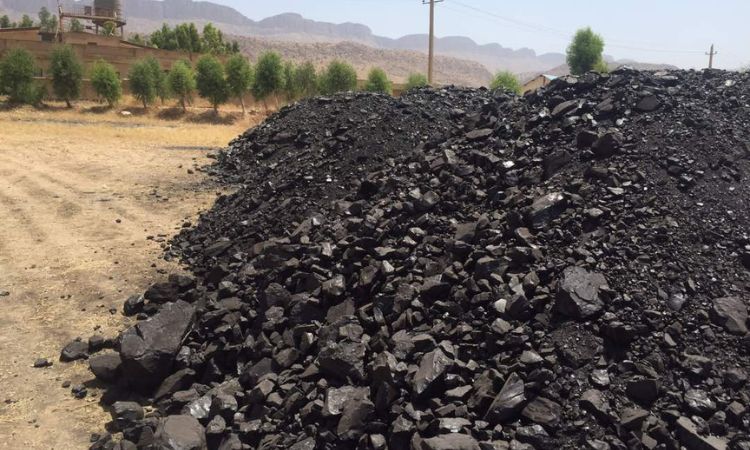The global petroleum coke market was valued at approximately USD 25.00 billion in 2023 and is projected to grow at a CAGR of 7.0% during 2024-2032, reaching nearly USD 45.92 billion by 2032. Petroleum coke, a carbon-rich solid material derived from oil refining, finds extensive application in industries like cement, power generation, steel, and aluminum production.
Petroleum Coke Market Overview
Key factors driving the petroleum coke market include increasing demand for energy, growth in industrialization, and expansion of end-use industries. However, environmental concerns related to its combustion and regulatory measures may pose challenges to market growth.
Petroleum Coke Market Trends
Current trends in the petroleum coke market include technological advancements in refining processes to produce high-quality coke, rising adoption of calcined coke in aluminum smelting, and efforts towards sustainable practices in coke production and usage.
Petroleum Coke Market Segmentation
The segmentation of the petroleum coke market helps understand its diverse applications and regional dynamics. Here's a detailed segmentation breakdown:
Petroleum Coke Market Segmentation
- By Product Type
- Fuel Grade Coke: Used predominantly in power plants and cement kilns due to its high calorific value.
- Calcined Coke: Essential in aluminum smelting and for manufacturing graphite electrodes due to its high purity and conductivity.
- By End-Use Industry
- Cement Industry: Utilizes fuel grade coke as a cost-effective energy source in kilns.
- Power Generation: Fuel grade coke serves as a fuel in power plants for electricity generation.
- Steel Industry: Calcined coke is used as a key raw material in steel production.
- Aluminum Industry: Calcined coke is crucial for anode production in aluminum smelting.
- Others: Includes applications in fuel blending, brick and glass manufacturing, and other industrial processes.
- By Region
- North America: Significant consumption due to the presence of large refineries and industrial infrastructure.
- Europe: Demand driven by stringent environmental regulations favoring cleaner fuel alternatives.
- Asia Pacific: Rapid industrialization and infrastructure development boost demand, particularly in China and India.
- Middle East & Africa: Abundant crude oil reserves support production and export of petroleum coke.
- Latin America: Growing industrial sectors contribute to regional consumption.
Get a Free Sample Report with Table of Contents
Petroleum Coke Market Growth
The market is expected to grow significantly due to increasing industrial activities globally, especially in emerging economies. Demand for petroleum coke is driven by its cost-effectiveness and high energy content, making it a preferred fuel and raw material in various manufacturing processes.
Recent Developments in the Petroleum Coke Market Scope
Recent developments include advancements in refining technologies for higher quality coke production, strategic partnerships among key players, and investments in sustainable practices to mitigate environmental impacts.
Petroleum Coke Market Analysis and Competitor Analysis
The market is competitive with key players such as BP Plc, Phillips 66 Company, PJSC Lukoil, Royal Dutch Shell Plc, Indian Oil Corporation Ltd., Valero Marketing and Supply Company, and Essar dominating the landscape. These companies focus on expanding their production capacities and enhancing product quality to maintain market leadership.
Key Players
- BP Plc
- Phillips 66 Company
- PJSC Lukoil
- Royal Dutch Shell Plc
- Indian Oil Corporation Ltd.
- Valero Marketing and Supply Company
- Essar
- Others
FAQs
What is petroleum coke?
- Petroleum coke, often abbreviated as pet coke, is a carbon-rich solid material derived from oil refining processes. It is typically a byproduct of crude oil distillation and is further processed to produce different grades suitable for various industrial applications.
What are the key applications of petroleum coke?
- Petroleum coke finds primary use as a fuel in industries such as cement production, power generation, and steel manufacturing. It is also essential in the aluminum industry for the production of anodes due to its high carbon content and conductivity.
How does petroleum coke compare to other fossil fuels in terms of cost and efficiency?
- Petroleum coke is generally more cost-effective compared to other fossil fuels like coal or natural gas, especially in industries where high calorific value and stable supply are crucial. Its efficiency varies based on the grade and application but is valued for its energy density.
What are the environmental concerns associated with petroleum coke usage?
- The combustion of petroleum coke emits pollutants such as sulfur dioxide (SO2) and particulate matter, contributing to air pollution and health risks. Efforts are ongoing to mitigate these impacts through cleaner production technologies and regulatory measures.
How is petroleum coke produced and refined?
- Petroleum coke is produced during the thermal cracking process in oil refineries, where heavy oils are heated to high temperatures to break down hydrocarbons into lighter products like gasoline and diesel. The residual solid carbon material is further processed to enhance its quality for specific applications.
What are the recent trends and developments in the petroleum coke market?
- Recent trends include advancements in refining technologies to produce high-quality calcined coke, increasing adoption of petroleum coke in emerging markets for industrial applications, and efforts towards sustainable practices in coke production and usage.

